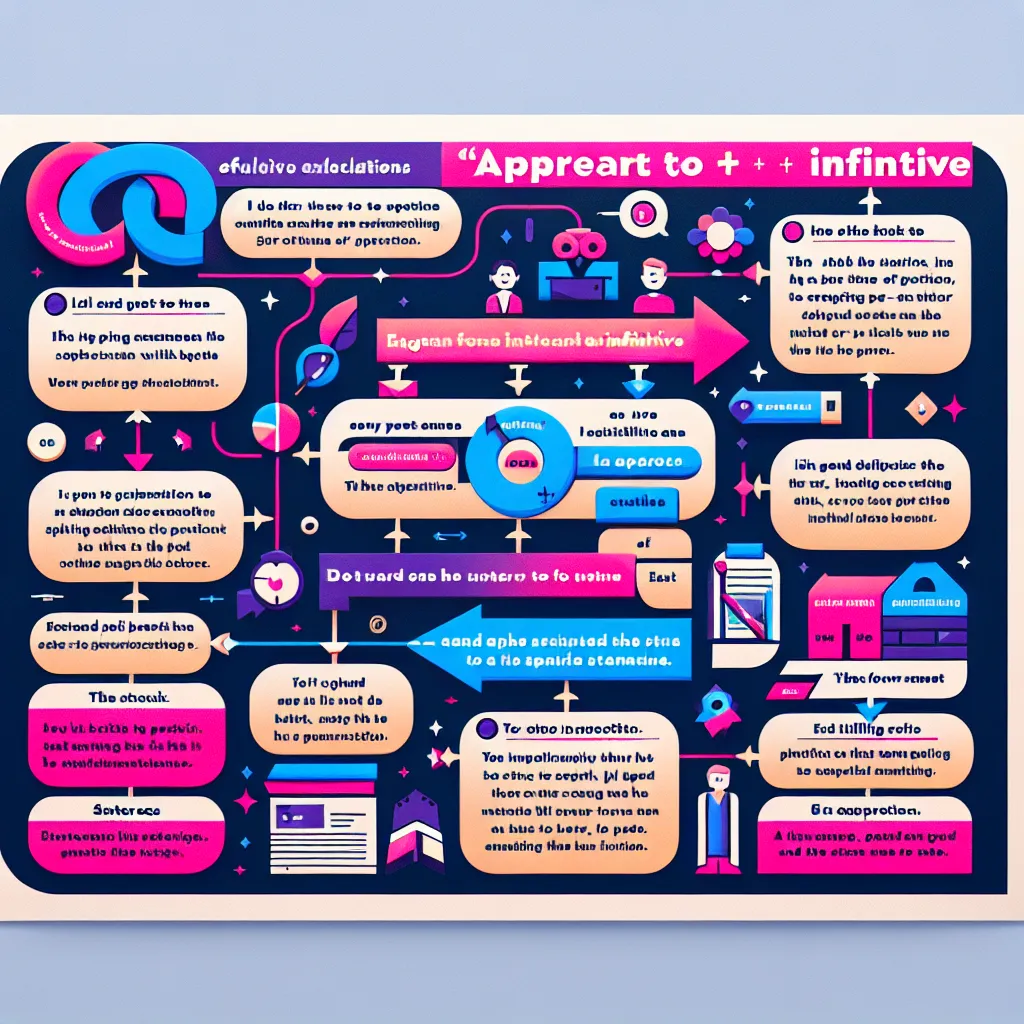The “appear to + infinitive” structure is a sophisticated grammatical construct that often features in IELTS exams, particularly in the Writing and Speaking sections. Mastering this structure can significantly enhance your language proficiency and help you achieve a higher band score. Let’s delve into its usage, importance, and application in IELTS.
Understanding “Appear to + Infinitive”
The structure “appear to + infinitive” is used to express how something seems or looks based on available evidence. It’s a way of making a judgment or observation without stating it as an absolute fact. This nuanced expression is highly valued in academic and professional English, making it particularly relevant for IELTS candidates.
Examples:
- The economy appears to be improving.
- The suspect appears to have left the country.
- The new policy appears to benefit large corporations more than small businesses.
- Climate change appears to be accelerating faster than previously thought.
- The ancient artifacts appear to date back to the Bronze Age.
In each of these sentences, the speaker is making an observation based on evidence, but without claiming absolute certainty.

Grammar and Usage
The formula for using this structure is:
Subject + appear(s) + to + base form of verb
It’s important to note that “appear” can be conjugated to match the subject:
- I/You/We/They appear to…
- He/She/It appears to…
Application in IELTS Writing
In IELTS Writing Task 2, using “appear to + infinitive” can demonstrate a high level of language proficiency. It’s particularly useful when discussing trends, making observations, or analyzing data.
Example paragraph:
“Recent studies on global warming appear to indicate a faster rate of temperature increase than previously estimated. While some skeptics argue that these findings are exaggerated, the data appears to be consistent across multiple independent research groups. Moreover, the effects of climate change appear to be more pronounced in polar regions, where ice sheets appear to be melting at an accelerated pace.”
Application in IELTS Speaking
In the Speaking test, using this structure can help you express opinions or observations more diplomatically and academically.
Example responses:
- “The graph appears to show a steady increase in unemployment over the past decade.”
- “Based on the information provided, the government appears to be taking steps to address the housing crisis.”
- “From what I’ve read, electric cars appear to be gaining popularity in many countries.”
Achieving Higher Band Scores
To achieve a band 7 or above in IELTS, it’s crucial to use a variety of complex structures accurately. The “appear to + infinitive” structure can help you demonstrate this ability:
Band 6 response: “I think the graph shows that unemployment is increasing.”
Band 7-8 response: “The graph appears to indicate a gradual increase in unemployment rates over the past five years.”
The latter response not only uses the target structure but also provides a more nuanced and academic observation.
Common Mistakes to Avoid
-
Incorrect verb form: “The company appears improving” (Incorrect)
Correct: “The company appears to be improving“ -
Confusion with “seem”: “He appears that he is happy” (Incorrect)
Correct: “He appears to be happy” or “He seems happy” -
Overuse: While it’s a useful structure, overusing it can make your speech or writing sound repetitive. Vary your language by using synonymous expressions like “seem to,” “look to be,” or “give the impression of.”
-
Misuse in factual statements: “The sun appears to rise in the east” (Awkward)
Better: “The sun rises in the east” -
Forgetting to change the verb: “They appears to be working hard” (Incorrect)
Correct: “They appear to be working hard”
Conclusion
Mastering the “appear to + infinitive” structure can significantly enhance your IELTS performance, particularly in Writing Task 2 and the Speaking test. It allows you to express observations and opinions with sophistication and nuance, key attributes that examiners look for in high-scoring responses. Practice incorporating this structure into your language use, but remember to use it appropriately and in conjunction with other complex structures for the best results.
For further practice, try using this structure when discussing topics like environmental changes, economic trends, or social phenomena in your IELTS preparation. This will help you become more comfortable with its usage and ready to apply it effectively in the exam.